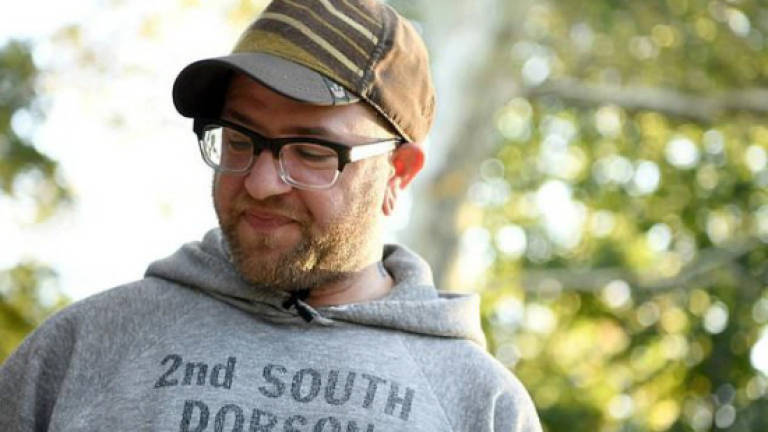Nicco Beretta shares trans journey to serenity

TWENTY years ago, Nicco Beretta began his transition from female to male. The metamorphosis took years, cost tens of thousands of dollars, and made him something of an expert on the shifting boundaries of gender and sexual identity.
Today the self-employed painter and handyman, 43, describes himself as "queer and polyamorous," single and open to liaisons with both men and women.
He sports a beard and multiple tattoos, and feels comfortable in his own skin – but this serenity did not come easily.
Born in Genoa in 1974 to Italian-American parents, he questioned his gender for years, isolated and alone, in the days before the internet could connect him to kindred spirits.
Raised as a girl, Naima – his given name – was expected to dress like one. When the family moved to London, he recalls, "I had to wear a uniform to school, I absolutely had to wear a skirt."
But later on, as the family relocated to the United States where school dress codes were more relaxed, Beretta was allowed to wear his brother's clothes. His parents were accepting of the change.
Back then, Beretta was regarded as a tomboy and was aware of feeling "different."
"As soon as puberty started I would feel very sick every day," he said. With the onset of menstruation, "I literally would throw up because of the fact that I didn't understand what exactly was happening to my body."
"It was all very upsetting, extremely so."
The whole everything
In early adulthood, Beretta was androgynous, uncomfortable in a pre-transition woman's body. He started hanging out with the artist and gay crowds, which were more open to fluid gender identity.
"My body in general was the big hurdle, because when I looked at myself in the mirror, I didn't see who I was looking at," he said.
The questioning continued until age 21, when he stumbled across the work of transgender photographer Loren Cameron. That's when everything clicked.
Naima was renamed Nicco. And using the internet which he could now access from libraries, he began to search for available treatments.
At 24, he started hormones, which were very expensive at the time. Beretta spent a year in San Francisco, at the time the only US city where you could find a handful of doctors specializing in treating transgender people.
He borrowed US$11,000 (RM46, 579) for a breast removal operation, paying off the loan over the course of several years.
A second operation followed three years later, in 2004: "The whole everything removed," is how he describes the procedure to take out his ovaries and uterus. It cost US$10,000 and was carried out by a doctor in a small city in New York state, who came recommended by a friend.
He stopped there, foregoing a surgical procedure to create a penis.
Beretta has hormone injections twice a month, which he says is routine, "like going to the hairdresser." There are medical exams twice a year to check hormone levels.
More options
At first, transgender men were still so rare that even the progressive gay community treated him like an alien.
"I would state I was transgender and they had no idea, they would be like, 'I don't even understand what that means.' There was a lot of confusion, and a fair amount of rejection."
Then the internet exploded and with it came "a boom of transition," Beretta said.
"All of a sudden there was a lot of young people like 19, 20 who were coming out as trans and getting surgeries and starting hormones. That was a little confusing ... I did not even know what trans was until I was 24."
There were also options that did not exist in his youth.
"Now there is really a broad spectrum, you have transgender fluid, gender non-conforming, and non-binary ... there are so many more options for people now," he said, smiling.
Though he would not have made different decisions for himself, he says he is "happy to see that there is a breaking down of the system of gender."
Although transgender people are slowly becoming more visible in society, Beretta feels they are more accepted in Europe, where he sees gender roles as more nuanced, with more "blurring of the lines."
Those roles are more rigid, he feels, the other side of the Atlantic.
"America has such a fascination with machismo culture like sports, and money, and power as far as men and especially white men are concerned," he said.
Being surrounded by such a restrictive notion of what it means to be a man, Beretta was initially filled with doubt.
"The big question before transition, which was so hard, was, 'Why would I want to be another white man in the world, especially in this society?'"
But in the end, he says, "it wasn't a choice ... I would probably have committed suicide otherwise."
Today Beretta lives in an apartment he shares with a friend and two dogs in Brooklyn – his thoughts no longer tortured, but rather occupied by the everyday concerns of a forty-something New Yorker.
"I am open about who I am and I move through the world very comfortably but I still don't know what I am going to do," he laughs. — AFP